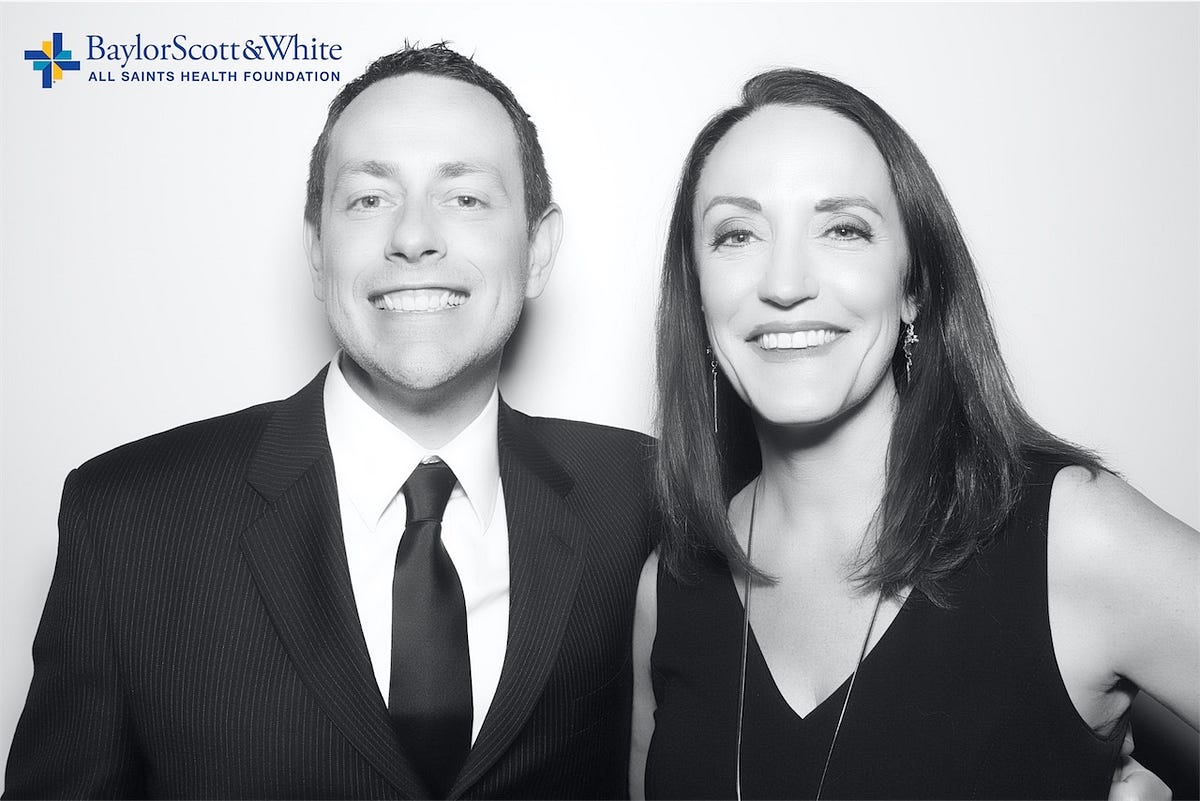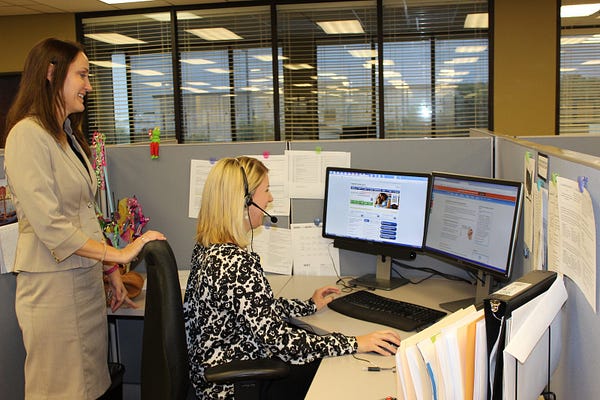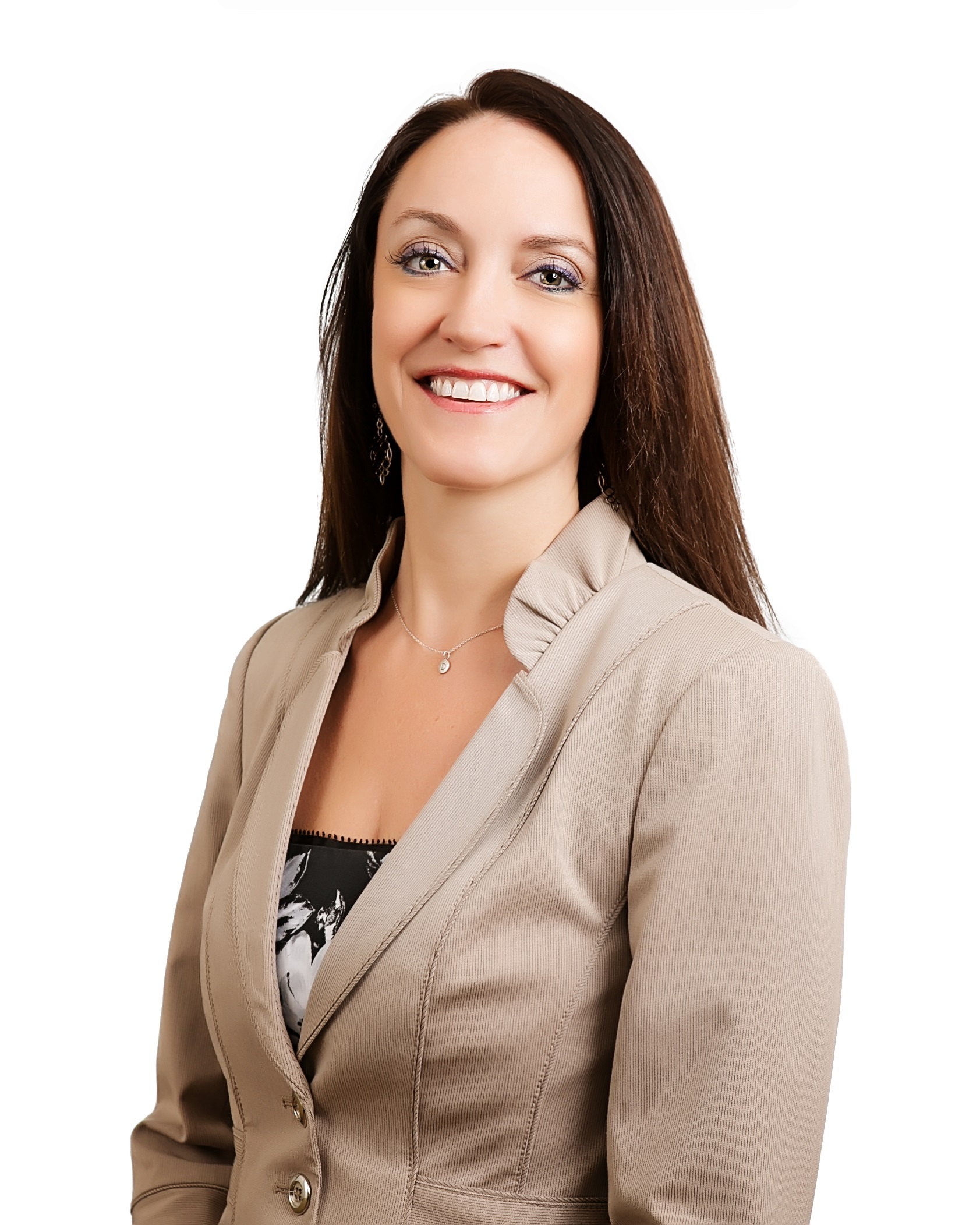Mindfulness is being aware of what’s happening around us and how we are reacting or not reacting to it. For example, when there is a lot on my plate as a business owner, I sometimes will catch myself thinking, “there’s not enough time” or “I’ll never get all this work done.”
Simply being aware of my own negative or frantic thoughts has been a total game changer for me. You can replace those thoughts with better, more positive and more productive thoughts. You’d be amazed at how well this works.
Our thoughts can be hugely insightful or downright harmful. By meditating we get to see the nature of our mind, which helps us to be less reactive to each of our thoughts. Every time we allow the thought to arise and pass by, we are rewiring our brain to more responsive.
As a part of my series about “How to Slow Down To Do More” I had the pleasure to interview Danielle Roberts. Danielle is a Medicare insurance expert and co-founder of Boomer Benefits where she and her team help baby boomers navigate their entry into Medicare. Danielle regularly for many online publications, including Forbes, where she is a member of the Finance Council. A TCU journalism graduate and former magazine editor, she enjoys sharing her knowledge about Medicare, retirement and insurance so that baby boomers can prepare for the costs of healthcare in retirement. She regularly appears as a guest expert on healthcare podcasts and radio shows.
Thank you so much for joining us! Can you tell us the “backstory” about what brought you to this specific career path?
I originally started in the group and individual health insurance market, but my team and I always had people asking us about Medicare. So, we made it a point to learn the Medicare insurance market, and it’s actually quite confusing and overwhelming for most Americans because they spend their lives on employer coverage, then they turn 65 and retire and are thrust into this national health insurance program that they know nothing about.
We recognized a great opportunity to provide education as well as supplemental insurance for the gaps that Medicare doesn’t cover.
According to a 2006 Pew Research Report report, 26% of women and 21% of men feel that they are “always rushed”. Has it always been this way? Can you give a few reasons regarding what you think causes this prevalent feeling of being rushed?
I think our digital society contributes to the feel of being rushed. We are connected to everything happening in the world by virtue of our cell phones. There is an information overload — email, phone calls, text messages, social media — there are messages and bits of information coming at us non-stop. On the one hand, we have access to information that we need at a moment’s notice, but on the other hand, it’s very hard to unplug from that to properly rest and reset. I can attest to this myself — even as my team has grown and I’m able to hand off duties, it seems like a never-ending stream of other tasks are right behind it.
Based on your experience or research can you explain why being rushed can harm our productivity, health, and happiness?
I’ve noticed in our own social media following of baby boomers and seniors that there is a great sense of wistfulness and loss over the days gone by before the internet and cable news and video games. This is because times were just simpler, and people were not as rushed in that pre-digital world the way they are now. As a business owner, I can also relate to what it’s like to have a very successful company which provides a great sense of joy and accomplishment but is also a great source of stress, which can sometimes overshadow the happiness. Being rushed all the time increases your blood pressure and makes you feel anxious. None of this is good for our health.
It also affects your creativity because you don’t allow for time for your brain to percolate on answers and solutions to various business problems and tasks.
I’ve also found that my own stress can sometimes bleed over into my employees. You have to remember that as a leader you set the example and if they see you rushing through tasks, they are likely to emulate you. This can affect the quality outcomes in your business, so it can do a great deal of harm if you don’t learn to rein that in and slow down to accomplish tasks in a productive manner which focuses on quality.
On the flip side, can you give examples of how we can do more, and how our lives would improve if we could slow down?
Taking time to sit down with your daily/weekly planner on Sunday evening and plan ahead for your week before you are already in the rush of Monday morning is an important step. When you outline your weekly tasks, you can accomplish more during the week by simply being organized. It’s important to allow enough time for critical tasks but also to allot some administrative time. When you accomplish more because you took the time to plan out your week, you are less rushed, less stressed and you feel more level-headed.
You should also take time to stop what you are doing and truly listen to your employees when they are speaking with you. If you are so busy that you cut them off, you actually end up promoting stress and disorganization. Instead, take time to listen and breathe. Ask your employees their own opinions and show them that you listen and value their perspective. You can then focus on setting realistic deadlines and delegating manageable workloads to your team members. When you are careful not to influence them with your mania, you end up promoting a sense of understanding, shared workload, and camaraderie. All of this contributes to success in your business.

We all live in a world with many deadlines and incessant demands for our time and attention. That inevitably makes us feel rushed. Can you share with our readers 6 strategies that you use to “slow down to do more”? Can you please give a story or example for each?
I’m an avid reader and love to read business and marketing books. I’ve started queuing them up on audio using the Blinkist app which allows me to absorb the main points in the book without having to read the entire book which of course takes longer. It’s a great way to make use of the time spent commuting to and from work or walking my dogs.
When I’ve got an important project, I also schedule it into the first part of my day on my weekly planner. This allows me to attack the project when I’m rested and fresh before I dive in and get overwhelmed by everything in my email inbox. I often do this with our video editing for YouTube. I’ll come into the office and work on that first and it allows me to get more done when I don’t dive into my email first thing.
Along these same lines, try to focus on one task at a time and see that task through to completion before you begin the next task. For example, if I know that I need to spend time working on SEO for our website, I’ll shut down everything else on my computer except for our rankings software and our website. This really helps me to focus.
Minimize distractions. Put your cell phone away. Set it to silent and put it in your purse or briefcase. Nothing kills your productivity and creativity like a text from a family member about something non- work-related. You can also ask you receptionist to hold any incoming calls until you are finished with whatever project you are working on.
One perk of being a business owner is that I can also schedule days where I work from home. My pace is slower at home as I’m not being constantly interrupted. I can slow down and concentrate on the tasks at hand and without fail I get twice as much done as I would on a day where I’m racing into the office.
In our weekly meetings, I ask my team members to tell us what they are working on and then help them prioritize. This shows them that you don’t expect them to accomplish 5 or 6 tasks all at once. This exercise in helping them prioritize their tasks and projects will also help you to do the same with your own workload.
How do you define “mindfulness”? Can you give an example or story?
For me, it’s being an observer of my own thoughts. Being aware of what’s happening around us and how we are reacting or not reacting to it. For example, when there is a lot on my plate as a business owner, I sometimes will catch myself thinking, “there’s not enough time” or “I’ll never get all this work done.”
Simply being aware of my own negative or frantic thoughts has been a total game changer for me. You can replace those thoughts with better, more positive and more productive thoughts. You’d be amazed at how well this works.
Can you give examples of how people can integrate mindfulness into their everyday lives?
When you have a negative or frantic thought, notice that about yourself. Notice how it makes you feel and where the thought came from and recognize that’s all it is — just a thought that “I’m so busy” or “I’ll never get this done.” We tend to allow these kinds of negative thoughts or negative self-talk to run through our brain all day. Practice watching your own thought processes and observing and replacing negative thoughts.
It will make you more mindful of staying positive even when you are busy.
Do you have any mindfulness tools that you find most helpful at work?
The best tool is to get up from your desk and take a break. Go to the breakroom and get some water or a snack. Burn a couple of flights of stairs if you wear a Fitbit. If it’s near lunchtime, take a washroom break and then go heat up your lunch. Be sure to breathe and clear your head. If I am in the breakroom and there are employees in there as well, I will personally take initiative to ask them how their weekend was or what they’ve been up to. It takes my focus off my own full plate and forces me to think about someone else. Such a great way to reset.

What are your favorite books, podcasts, or resources that inspire you to use mindfulness tools or practices
My favorite podcast on mindfulness is called The Life Coach School Podcast by Brooke Castillo. The ideas on this podcast will completely change your way of thinking and help you be more mindful about every single thought that runs through your head. Brooke also has a book called Self-Coaching 101 that goes into so many great ways to be mindful.
There’s also a great book by Dan Harris called 10% Happier. Dan has a great sense of humor and helps you find small ways to edge up your happiness through mindfulness.
Can you please give us your favorite “Life Lesson Quote”? Can you share how that was relevant to you in your life?
“Though nobody can go back and make a new beginning… anyone can start over and make a new ending.” …. Chico Xavier
This is relevant to me because we all make poor choices sometimes and we can either live with regret or let it go and start a new day. You are so much more productive and positive when you focus on the ending instead of the beginning.
You are a person of great influence. If you could inspire a movement that would bring the most amount of good to the most amount of people, what would that be? You never know what your idea can trigger. 🙂
I often wish that I knew then what I know now. I’ve tended toward being a stress-case my entire life. Thinking back on my college days, I wish I’d spent a bit more time enjoying the journey rather than focusing on straight A grades. Your college degree is a piece of paper — it’s the life experiences that helps you develop into who you are. While it’s important to pass your classes, I think it’s okay to spend a little more time enjoying the ride. At age 45, who in the world cares if I got an A or B in my elective courses back in 1992? What was more important was that I learn to set my own schedule, make my own friends, do my own laundry and pursue my own interests.
Thank you so much for these insights! This was so inspiring!
About the Author:
After 15 years working in Commercial Real Estate in New York City, Ashley Graber changed the coast she lived on and the direction of her life from Real Estate to the worlds of Psychology and Meditation & Mindfulness. Ashley came to these practices after getting sober and in the decade plus since, she now runs a busy mindfulness based psychotherapy practice at Yale Street Therapy in Santa Monica, CA where she see adults and children and speaks on the benefits of meditation and mindfulness practices.
Ashley is an Owner and Director of Curriculum for the next generation meditation app & mindfulness company ‘Evenflow’ and launched the company’s one to one online mindfulness mentoring program. Ashley also educates teachers and administrators in schools and presents in businesses across Santa Monica and Los Angeles.
Ashley was trained in Meditation and Mindfulness practices by prominent teachers; Elisha Goldstein, Richard Burr and Guiding teacher at Against the Stream Boston, Chris Crotty. Her Mindfulness Based Stress Reduction (MBSR) certification was done through The Center for Mindfulness at UC San Diego. Additionally, Ashley is trained by Mindful Schools to teach Meditation and Mindfulness practices to children and families. Ashley’s unique combination of psychotherapy, trauma reprocessing and meditation and mindfulness practices make her a sought after therapist and mindfulness educator and speaker. Her passion for the benefits of mindfulness practices as well as her enthusiasm for helping young kids and adults is the drive to teach these very necessary, life long skills and why she wrote and runs the Mindfulness for Families program at The Center for Mindful Living. This is where she teaches groups of families with children ages 6–12. Ashley was featured on Good Morning LaLa Land, presented on Resilience at the renowned Wisdom. 2.0 Mindfulness & Technology conference, and presented at the TED Woman conference offering an in-depth look at the profound psychological and physiological consequences of chronic stress, and how meditation and mindfulness practices can alleviate these effects.


